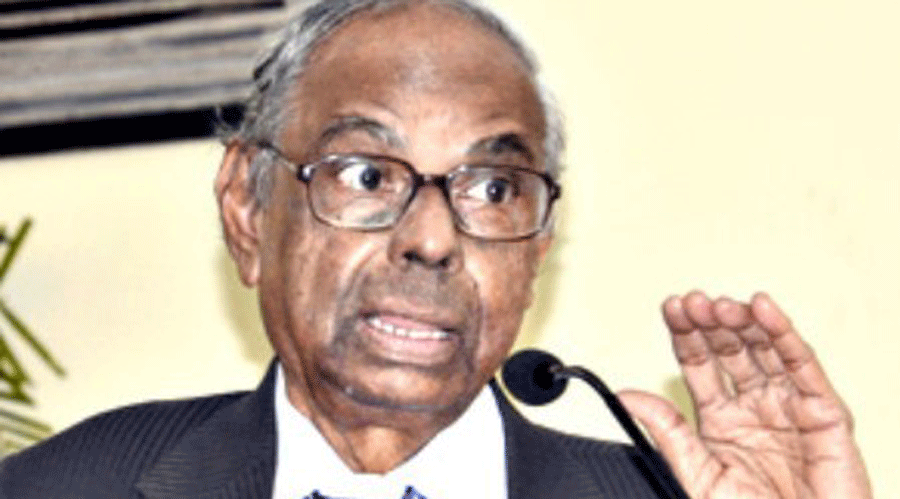The Reserve Bank of India (RBI) had braced itself for a loan default by the Government of India during the balance of payments crisis in 1990, according to former RBI governor C. Rangarajan.
In his memoir — Forks in the Road: My Days at RBI and Beyond, published by Penguin Random House — Rangarajan said the situation was so precarious the RBI was open to the possibility to the sale of plum oveseas properties to raise funds and avoid the ignominy of default.
In an interview with Karan Thapar for The Wire, Rangarajan said the RBI in August 1990 formally wrote to the National Front government headed by V.P. Singh to approach international institutions such as the IMF for a bailout.
The government did not follow RBI’s recommendation and four months later was forced to approach the IMF for a loan.
Rangarajan, who was the deputy governor to governor R.N. Malhotra at the RBI, said the failure to act earlier was “a failure of political leadership”.
He pointed out that the Centre then was “reluctant to act either because it had not recognised the seriousness of the situation or because it was ideologically averse to go to the IMF”.
However, due to this delay in acting fast, there was “a fast deterioration” in the situation and the country’s forex reserves in December 1990 were just equivalent to only three weeks’ imports.
The position, Rangarajan noted, was so acute that there was some talk of selling properties owned by the government abroad and one that was specifically considered was the Embassy in Tokyo.
Rangarajan, however, parried questions on whether he would accept the failure to act and allow the economic crisis to get worse was irresponsibility on the part of then finance minister Madhu Dandavate and Prime Minister V.P. Singh.
On whether the precarious situation had led to an apprehension that India would default on its commitments, Rangarajan said that at the RBI, while they were "prepared for everything (even a default)’’, the focus was on how to avoid such a default. He added that while there were countries that had decided to default as a "matter of policy’’, this option was not considered then.
The BoP crisis was caused by a widening of the country’s current account deficit — the excess of imports over exports — and reliance on commercial sources of financing which led to a spike in its debt-service ratio.
Iraq’s invasion of Kuwait in 1990 only compounded the challenges for India as remittances dried up and oil prices shot up.
India finally had to pledge 46.91 tonnes of gold to the IMF to borrow $405 million. That sum, according to Rangarajan, may look small 30 years on but the amount was crucial at that time to prevent a default.











